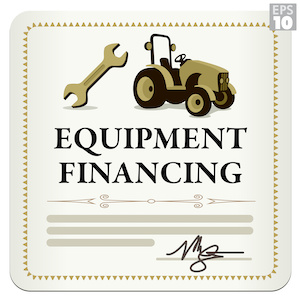Green is the New Black: Why the GGRF Matters to Your Small Business
What if you could significantly reduce your operating costs? Then imagine if you could attract a new wave of environmentally

If you're planning to bolster your business productivity by adding new equipment, equipment financing provides an economical alternative to direct purchase. Leasing allows you to modernize, upgrade, or acquire essential equipment without draining your operational cash flow.
Two prevalent types of equipment leases exist in the small business loans landscape:

Let's unravel the specifics of each, helping you to secure the optimal financing for your business equipment needs.
Acting akin to a rental agreement, the FMV lease or operating lease does not confer ownership of the leased equipment. It's comparable to auto leasing, where the lessee uses the equipment for a fixed duration with a set monthly payment. Upon lease termination, the lessee can buy the equipment at its then-current FMV, extend the lease, return the equipment, or upgrade.

A $1 Buyout Lease, otherwise known as a capital lease or EFA, is akin to equipment purchase with a loan. It is chosen when the business intends to retain the equipment long-term, or where equipment obsolescence is irrelevant.
Choosing the right equipment financing for your business depends on your unique needs and circumstances:
Another variant to these major equipment financing options is the Term Residual Lease. This lease offers the standard option to either purchase or return the equipment at the end of the original term but with a shortened payment period. At the end of this shortened term, the customer can buy the equipment by making additional payments.
The best equipment financing solution often boils down to your business cash flow, tax situation, and the type of equipment you wish to finance. An FMV lease is ideal for businesses requiring frequent tech updates, while a $1 Buyout Lease could be the go-to choice for long-term asset use or potential resale.
Bibliographies:
American Credit®, Inc website: amcredit.com

Sign up for the newsletter and get our latest stories delivered straight to your inbox.